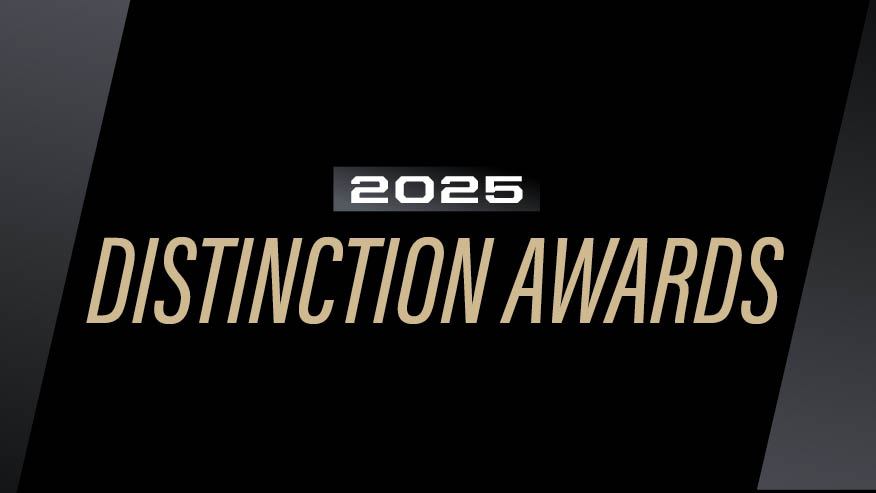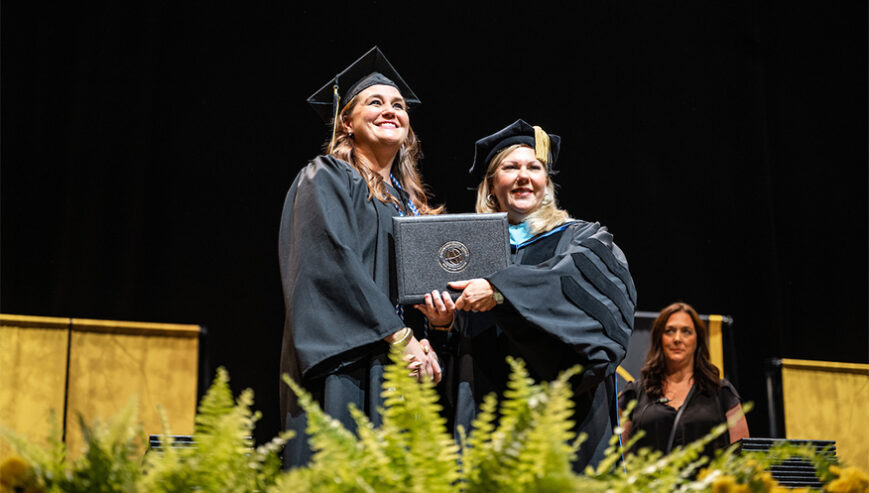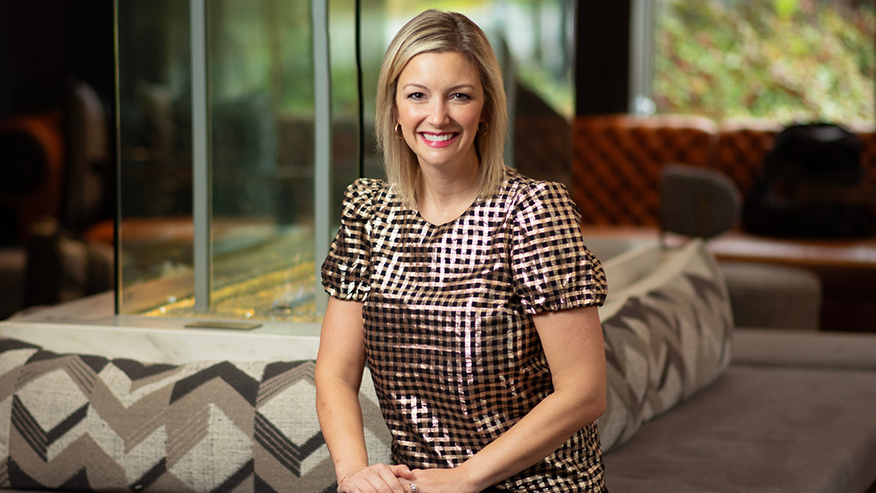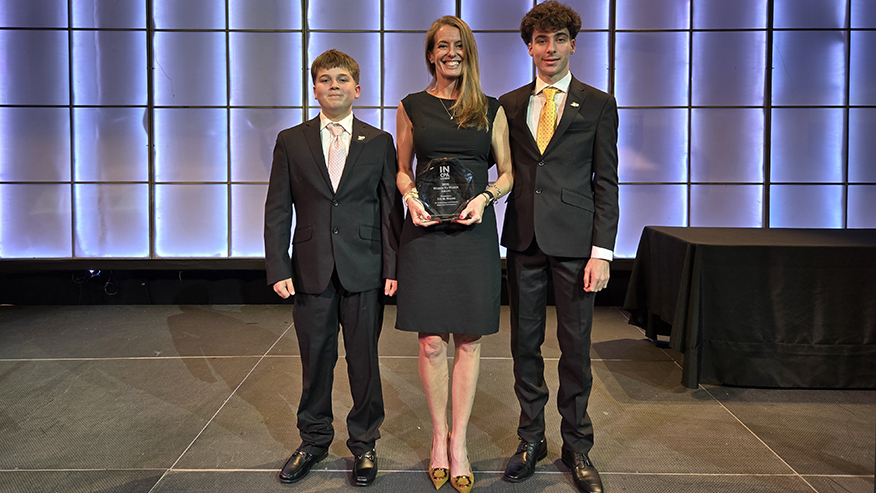Champion for access to justice, Purdue Global Law School dean continues to move law school forward
Martin Pritikin’s relentless pursuit of opportunity, accreditation drives everyday efforts

Martin Pritikin, dean and vice president of Purdue Global Law School, advocates for opportunities for all students pursuing law degrees as he pushes law school into the future. (Purdue Global photo/Greta Bell)
WEST LAFAYETTE, Ind. — Martin Pritikin’s passion for access to justice is arguably unmatched. Since being appointed dean and vice president of Purdue Global Law School (formerly known as Concord Law School) in 2016, Pritikin has leveraged his experience as a lawyer and innovative educator to move what was already a progressive law school to the next level.
“One of the reasons I left a traditional brick-and-mortar law school after being there for 12 years is because I really believed in the online model and its ability to bring down cost and expand access,” Pritikin said. “Law school isn’t for everybody, but if you want it, your ZIP code or your tax bracket shouldn’t be the reason you don’t go.”
Pritikin earned his Bachelor of Arts degree from the University of Southern California and his Juris Doctor from Harvard Law School, where he graduated magna cum laude and served on the Harvard Law Review.
Before arriving at Purdue Global, Pritikin was a litigator at Quinn Emanuel in Los Angeles, where he worked with many high-profile clients. He also spent 12 years at the former Whittier Law School, where he won the school’s Teacher of the Year award twice and was the first to design and implement a hybrid classroom model. A much-published academic, he founded and directed the school’s Institute for Trial and Appellate Practice and served as the school’s inaugural associate dean for experiential learning as well as several leadership roles.
He has maintained his connection to practice even while in academia, volunteering at a prosecutor’s office and providing litigation consulting on occasion.
Leading an online law school
Since joining Purdue Global Law School in 2016, Pritikin has raised the school’s profile. He helped the school earn the American Bar Association’s Brown Select Award for Legal Access. In addition, he led a team that won the inaugural Leading Edge Prize for Innovation in Legal Education.
“Access to legal education translates directly into access to legal services,” Pritikin said. “One of the things that I’m most proud of at Purdue Global Law School is that it was one of the first fully online law schools to earn accreditation from the State Bar of California. As soon as they created a pathway, we were the first to apply and the first to get it.”
Pritikin is responsible for providing academic leadership for law school programs, faculty and students, while advancing the school’s mission to offer an affordable and accessible education for those seeking to learn the law. Pritikin has taught and designed courses in evidence, trial advocacy, criminal law, wills and trusts, advanced litigation and artificial intelligence law.
Purdue Global Law School’s bar-pass rates have improved every year that Pritikin has served as dean, even outperforming the average of all graduates of American Bar Association-approved law schools on the February 2023 California bar exam. Pritikin believes that positive momentum makes a tremendous difference in terms of perception.
“It is clear that the pandemic was a watershed moment in the recognition of the power of online learning,” Pritikin said. “When done right, online law school can be just as good as — or better than — an in-person program in many respects.”
Because the law school does not face the expenses of maintaining a physical campus, it is able to provide a high-quality and relevant legal education at one-third the cost of traditional law schools. In addition, with the school being designed for working adults, the online format makes it an attractive option for nontraditional students who might not otherwise be able to attend law school.

“I was a traditional law school student,” Pritikin said. “I went straight through from high school to college to law school, and I didn’t have a job or a family at the time, and it seemed hard enough. So for our students to manage law school, on top of their jobs and kids and everything else they have going on, week in and week out for several years, just is amazing to me. It’s hard work, but for those who can put in the work and have that grit, it can be extremely rewarding.”
Law students can take advantage of experiences such as the school’s award-winning moot court team, which competes head-to-head with traditional law schools. The school has an externship program allowing students to earn academic credit while volunteering — either in person or remotely — at a legal aid organization, law firm or other professional setting.
It’s because of these experiences and opportunities that The Princeton Review has included the school among the Best Online Juris Doctor Programs each year since it began its list in 2021.
Pritikin established and moderates the school’s Distinguished Speaker Series, which has featured guests including a member of Congress; a former dean from Harvard Law School; and law school faculty from UCLA, USC and Northwestern.
“Just because our students are online doesn’t mean they shouldn’t have access to a vibrant academic community,” Pritikin said. “By hosting speakers remotely, we are able to expose our students and alumni to prominent scholars, practitioners and jurists from around the country.”
Expanding access for all
Pritikin’s efforts to provide access to justice for all include advocating with states to allow graduates of non-ABA schools, like Purdue Global, to be eligible to sit for the bar exam upon graduation.
The ABA has not yet accredited a fully online law school. Currently, a school must be no more than one-half online to earn that seal of approval. Pritikin is quick to point out that state supreme courts or boards of bar examiners determine who may sit for the bar, not the ABA. Graduates with a California license may be eligible to practice in other states after they meet those states’ requirements. In addition, there are certain federal specialties like immigration law that graduates may practice nationwide.
Pritikin is aware of at least 15 jurisdictions beyond California where Purdue Global Law School graduates have been licensed, either through meeting state requirements or through individual waivers.
But Pritikin is never satisfied with the status quo and is always looking to create more opportunities for his school’s graduates.
His efforts have already begun to pay off. The Indiana Supreme Court recently amended its bar admission rules. Under the revised rule, graduates of a non-ABA law school can petition for a waiver of the ABA education requirement.
“The ruling by the Indiana Supreme Court is a measure that will help the state, law students and schools like Purdue Global Law School in many ways,” Pritikin said. “This is a big step for us and for others. Indiana is facing a lawyer shortage, particularly in rural areas, and this new rule can help address that.”
Pritikin has met with representatives from Connecticut and Montana to explore rule changes in those states. In early 2024, the ABA Council of the Section of Legal Education and Admissions to the Bar released for notice and public comment proposed revisions to the ABA Standards and Rules of Procedure for Approval of Law Schools that would allow fully online law schools to pursue provisional and then full ABA approval. Though passage of any revised standards isn’t anticipated until 2025, it is a development that Pritikin is watching closely.
“Although a number of ABA law schools have dipped their toe in the water and offered hybrid or online options, they’re all charging the same for those options as they are for their campus-based programs,” Pritikin explained. “The ABA now appears to be recognizing that if they want to make a serious dent in the problem of skyrocketing law school tuition, they need to allow a fully online law school to pursue ABA approval. We’re excited that the door may finally be opening, and we’re doing what we can to be prepared to walk through it when it does.”
Additional success markers
Pritikin can point to numerous other data and accomplishments supporting his assertion that Purdue Global Law School provides the rigorous, interactive, practical legal education its graduates seek.
“We were the first online law school to participate in a legal incubator,” Pritikin said. “Legal incubators are programs that help law grads launch and develop their own practices, but also have them focus on devoting at least some of their services pro bono. We were the first ones to participate remotely (prepandemic) in such an incubator and overcome geographic and cost barriers. And for that, we won an award from the ABA.”
Pritikin is especially proud of what feedback on the annual Law School Survey of Student Engagement says about Purdue Global Law School students’ experiences compared to those at in-person schools. Students rated their education more favorably in areas such as training in oral advocacy, class participation, positive relationships with faculty and advisors, and overall experience.
“I think there are a lot of objective indicators that say, ‘Yeah, we are just as good or better than the traditional schools’ — and we’re doing it for a third of the cost,” Pritikin said.
Innovative beginnings, innovative future
Pritikin is continuing to push Purdue Global Law School forward into the future.
“The idea that someone was providing an online law school for almost a quarter century before the pandemic blows people’s minds, as well it should,” Pritikin said. “When the idea for the law school started back in 1998, most people, including myself, still had a dial-up internet connection. The internet was not well developed at that point, and the idea of having a fully online law school was really audacious.”
In 2024 the school launched a new course focused on AI and the law, which explores how state, federal and even foreign regulation of this fast-changing technology is impacting society and numerous fields within the economy.
“Law schools should be preparing students not just for the world as it exists today but also how it is likely to exist in the future,” he said. “Purdue Global Law School, which has technological innovation woven into its DNA, seeks to be ahead of the curve in addressing the impact of game-changing AI.”
His interest in using technology to deliver a high-quality legal education still drives him today, motivating him to help students practice counseling clients and conducting witness depositions or trial examinations within a virtual reality environment.
Through it all, Pritikin’s relentless efforts to provide affordable access to an exceptional education for all students, while addressing the needs of today and tomorrow, continue to move Purdue Global Law School forward.
“I’m blown away by every one of our students. A number of our graduates have gone on to do amazing things. One of our graduates actually won a national award for General Counsel of the Year — twice. We have graduates who have won awards in their cities and states for their commitment to pro bono services. We have graduates overseas championing for human rights. We have graduates in every corner of the country and pretty much the world, representing Purdue and Purdue Global proudly.”
About Purdue Global Law School
Purdue Global Law School is part of Purdue Global, the public, nonprofit, online school for working adults backed by Purdue University. Founded in 1998, Purdue Global Law School was the first to offer students a traditional law school program in an affordable, online format. For more information, please visit PurdueGlobalLawSchool.edu.
Media contact: Adam Bartels, adam.bartels@purdueglobal.edu
Source: Martin Pritikin



